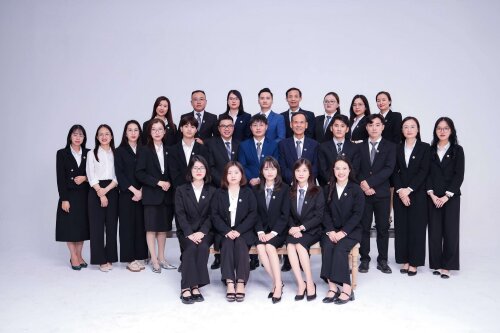Best Child Custody Lawyers in Da Nang
Share your needs with us, get contacted by law firms.
Free. Takes 2 min.
Free Guide to Hiring a Family Lawyer
List of the best lawyers in Da Nang, Vietnam
About Child Custody Law in Da Nang, Vietnam
In Vietnam, Child Custody law is governed by the Law on Marriage and Family. This law states that the interest of the child should always be the highest priority in any cases related to child custody. As a rule of thumb, children under 36 months will be under the mother's custody unless she is deemed unfit. For children above this age, custody will be granted based upon the child's interests and their ability to express their wish. Da Nang, being a part of Vietnam, follows these laws strictly.
Why You May Need a Lawyer
Having a lawyer during child custody cases can provide essential legal guidance and representation. These situations may include divorces, where both parties disagree on the child's future residence, in cases of domestic violence, or when the child's welfare is in danger. A lawyer's expertise can also be indispensable when negotiating the terms of visitation for the non-custodial parent or modifying an existing custody arrangement.
Local Laws Overview
Under Da Nang laws, if disputes arise over custody, local courts will decide based on the child's best interests considering factors like the child's age, health, emotional ties with parents, parents' capability to raise the child, and the child's wishes (if they are mature enough). The law provides no preference to any parent based on gender, wealth, or social position. An essential aspect to note is that non-custodial parents are expected to participate in supporting the child's upbringing financially - commonly referred to as "child support".
Frequently Asked Questions
1. Can the child decide who they want to live with?
This largely depends on the age and overall mental development of the child. The court usually considers the child's wishes if they are mature enough to make such decisions.
2. Does child custody always go to one parent?
Not necessarily. In some cases, joint custody may be awarded where both parents share children's physical and legal custody. However, this is not very common in Vietnam.
3. What if the custodial parent is not following the agreed-upon conditions?
In this case, the non-custodial parent can appeal to the court to seek enforcement of the custody agreement or even request a modification of the custody order.
4. Can a parent refuse visitation rights to the other?
Unless the court has specifically granted permission, a custodial parent cannot deny visitation rights to the non-custodial parent.
5. Can grandparents or other relatives take custody?
In cases where both parents are found unfit or incapable of taking care of the child, custody may be awarded to the grandparents or other relatives.
Additional Resources
The Family and Juvenile Court in Da Nang, Ministry of Justice, and legal aid organizations can be valuable resources. There are various NGOs that provide free legal advice and support in such matters. Also, the provincial Department of Labour, Invalids and Social Affairs can provide social assistance when needed.
Next Steps
If you need legal assistance in Child Custody, the first step is to consult with a professional who specializes in marriage and family laws. They can evaluate your case, provide critical advice, and help you understand the best course of action. Remember, in child custody matters, the welfare of the child is always taken as the priority. It is recommended not to take matters into your own hands without understanding the legal implications.
Lawzana helps you find the best lawyers and law firms in Da Nang through a curated and pre-screened list of qualified legal professionals. Our platform offers rankings and detailed profiles of attorneys and law firms, allowing you to compare based on practice areas, including Child Custody, experience, and client feedback.
Each profile includes a description of the firm's areas of practice, client reviews, team members and partners, year of establishment, spoken languages, office locations, contact information, social media presence, and any published articles or resources. Most firms on our platform speak English and are experienced in both local and international legal matters.
Get a quote from top-rated law firms in Da Nang, Vietnam — quickly, securely, and without unnecessary hassle.
Disclaimer:
The information provided on this page is for general informational purposes only and does not constitute legal advice. While we strive to ensure the accuracy and relevance of the content, legal information may change over time, and interpretations of the law can vary. You should always consult with a qualified legal professional for advice specific to your situation.
We disclaim all liability for actions taken or not taken based on the content of this page. If you believe any information is incorrect or outdated, please contact us, and we will review and update it where appropriate.













